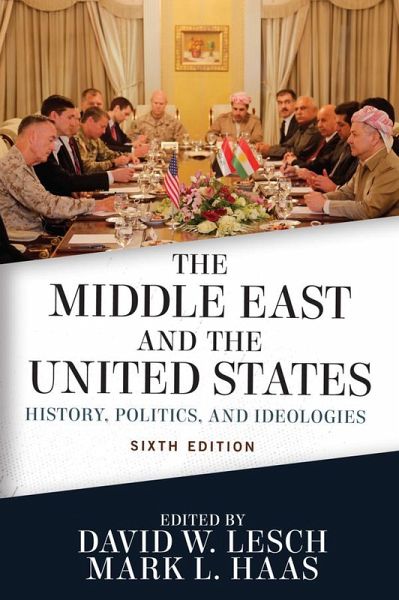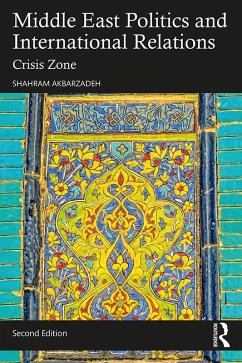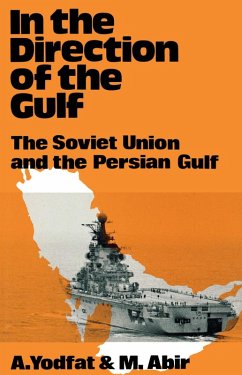
The Middle East and the United States (eBook, ePUB)
History, Politics, and Ideologies
Redaktion: Lesch, David W.; Haas, Mark L.
Versandkostenfrei!
Sofort per Download lieferbar
48,95 €
inkl. MwSt.
Weitere Ausgaben:

PAYBACK Punkte
24 °P sammeln!
The Middle East and the United States brings together scholars and policy experts to provide an empirical and balanced assessment of US policy in the Middle East primarily from the end of World War I to the present. Carefully edited by David W. Lesch and Mark L. Haas, this text provides a broad and authoritative understanding of the United States' involvement in the Middle East.The sixth edition is significantly revised throughout, including a new part structure and part introductions that provide students with greater context for understanding the history of the United States and the Middle E...
The Middle East and the United States brings together scholars and policy experts to provide an empirical and balanced assessment of US policy in the Middle East primarily from the end of World War I to the present. Carefully edited by David W. Lesch and Mark L. Haas, this text provides a broad and authoritative understanding of the United States' involvement in the Middle East.
The sixth edition is significantly revised throughout, including a new part structure and part introductions that provide students with greater context for understanding the history of the United States and the Middle East. The five parts cover the watershed moments and major challenges the United States faces in the Middle East, from the Cold War proxy wars and the Arab-Israeli conflict, to the Gulf wars and the upheaval in the region post-Arab uprisings. Three new chapters-on the Golan negotiations, US-Saudi relations, and the US fight against al-Qa'ida and ISIS-make this the most current and comprehensive book on the United States' involvement in the Middle East
The sixth edition is significantly revised throughout, including a new part structure and part introductions that provide students with greater context for understanding the history of the United States and the Middle East. The five parts cover the watershed moments and major challenges the United States faces in the Middle East, from the Cold War proxy wars and the Arab-Israeli conflict, to the Gulf wars and the upheaval in the region post-Arab uprisings. Three new chapters-on the Golan negotiations, US-Saudi relations, and the US fight against al-Qa'ida and ISIS-make this the most current and comprehensive book on the United States' involvement in the Middle East
Dieser Download kann aus rechtlichen Gründen nur mit Rechnungsadresse in A, B, BG, CY, CZ, D, DK, EW, E, FIN, F, GR, HR, H, IRL, I, LT, L, LR, M, NL, PL, P, R, S, SLO, SK ausgeliefert werden.













